Keywords: Irish In Australia
There are more than 200 results, only the first 200 are displayed here.
-

- Greg O'Kelly
- 01 July 2015
3 Comments
The phrase 'the public square' is peppered throughout Frank Brennan's work. The 1988 film Cinema Paradiso depicts the public square in a Sicilian village over 30 or so years, and its slow and subtle change from a place where human beings gather to laugh, play and discuss. Billboards and garish signs appear and it becomes a car park bereft of its humanity.
READ MORE
-

- Sean McManus
- 25 June 2015
4 Comments
As much as any other religious figure in Australia, Frank Brennan has maintained a religious perspective while engaging in issues of ethics and justice in contemporary Australia. His book Amplifying that Still Small Voice emphasises the importance of the 'religious sense that the human person is created in the image and likeness of God', while speaking in the language and terms that are understandable to the public square.
READ MORE
-
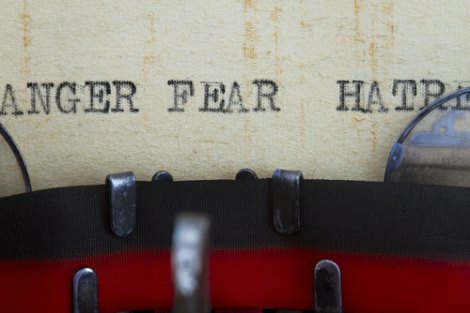
AUSTRALIA
- Andrew Hamilton
- 11 June 2015
30 Comments
In my early years of secondary school there was a fine footballer in the senior team of another school. I had never met him, but I hated him with a passion. This memory returned in recent weeks when reading of the vilification of Adam Goodes, and some of the opinion pieces on the Ballarat sexual abuse. Hatred avoids questions by trying to obliterate those whose lives pose them to us.
READ MORE 
-

- Paul Bongiorno
- 09 June 2015
9 Comments
'In discussing Australia's asylum seeker policies Frank laments the government's deaf ear to calls from the churches, his own included, for a greater measure of compassion and a better way of dealing with the issue of boat people. Frank wryly comments: 'If only the Abbott Government with its disproportionate number of Jesuit alumni cabinet ministers could listen.' Paul Bongiorno launches Fr Frank Brennan SJ's book Amplifying That Still, Small Voice at the Australian Centre for Christianity and Culture, Canberra, 8 June 2015.
READ MORE
-

AUSTRALIA
- Andrew Hamilton
- 04 June 2015
60 Comments
The Vatican Secretary of State's post-Irish referendum comment refers to the Church's understanding of the privilege given by society to lasting heterosexual marriage reflecting the social good of the institution. But the heaviest defeats for humanity come from government policies that focus on the individual, ignore the needs of those raising children, and penalise the disadvantaged.
READ MORE 
-
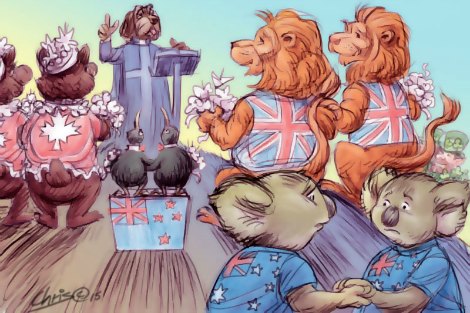
AUSTRALIA
- John Warhurst
- 01 June 2015
71 Comments
Whatever one's position on the introduction of same sex marriage, it's clear that Australia now lags well behind the Western world, including many comparable countries such as the UK and New Zealand. This contrasts with 120 years ago around the time of Federation, when Australia was a leader on issues such as votes for women, other democratic reforms such as the secret ballot, and a living wage. Our country is now a laggard.
READ MORE 
-

- Frank Brennan
- 25 May 2015
7 Comments
There are many things different from Ted's day, but he would have spoken of them without fear or compromise. A pope from the South who asks 'Who am I to judge?'; a 62 per cent Irish people's vote in favour of expanding the definition of civil marriage; the long awaited beatification of Oscar Romero whose identification with the poor did not win immediate Vatican approval; the call by civic leaders for an Australian cardinal to return home and answer questions posed by a royal commission; and the election of a black US president.
READ MORE
-

EUREKA STREET TV
- Peter Kirkwood
- 13 May 2015
3 Comments
Most recent controversies over places of worship in Australia have involved Muslim prayer halls, cultural centres and mosques. But at Crossley, a small coastal community between Port Fairy and Warrnambool, there was another dispute over a place of worship, but a Catholic one. One of the social activists spearheading the campaign was author Regina Lane.
READ MORE 
-
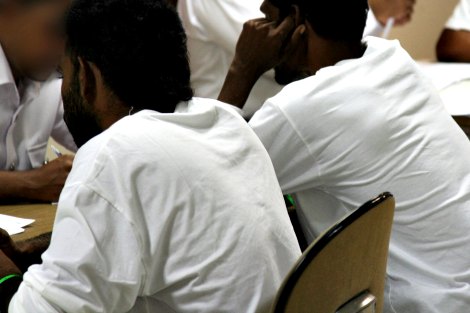
ARTS AND CULTURE
- Barry Gittins
- 05 May 2015
2 Comments
Anglo-Saxons and Germans and Dutch and the Frisians all saw ‘the evil’ as inferior breeding. When you’re tagged as ‘bad’ or evil it seems you’re guilty of dreaming non-tribal dreams. The African-American ‘n-word’, ‘bad nigger’ was tribal rejection by white folks de rigueur.
READ MORE 
-
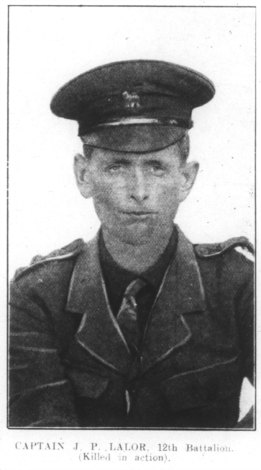
AUSTRALIA
- Peter Lalor Philp
- 22 April 2015
6 Comments
On the first morning of the Gallipoli landing, the 12th Battalion was fighting its way up the steep slopes from the beach below. Reaching the top of the cliff, the Australians discovered their commanding officer Colonel L.F. Clark was dead. Captain Joseph Peter Lalor – the 31 year old grandson of Peter Lalor of Eureka Stockade fame – then took command, but by noon he was also dead.
READ MORE 
-

- Simon Caterson
- 02 April 2015
4 Comments
In contrast to the sectarian suspicion expressed by elements of non-Catholic Australia towards Melbourne’s Archbishop Daniel Mannix, who opposed military conscription during the First World War, his Perth contemporary Archbishop Patrick Clune was lauded during the war as ‘pro-war effort, pro-conscription, pro-empire and pro-crown’. Clune travelled from Perth all the way to the Western Front so as to minister to the Catholic soldiers sent there, and he enjoyed warm relations with Protestants and Jews.
READ MORE
-
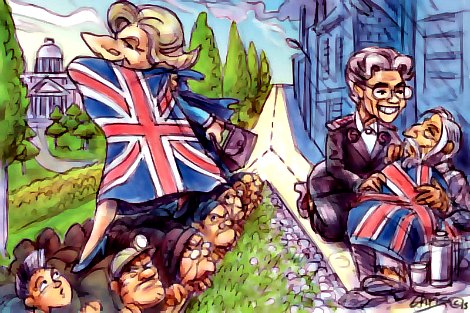
INTERNATIONAL
- Barry Gittins
- 01 April 2015
15 Comments
Former Australian Salvation Army world leader General Eva Burrows, who died on 20 March, tried in vain to engage the former British PM in making the preferential option for the poor. ‘Margaret Thatcher was a disappointment,’ the General said. ‘I felt she didn’t have a deep, true feeling for the poor. I invited her to come out on the soup run indirectly and said it wouldn’t be a media event, we’d go incognito, but the answer was no.’
READ MORE 